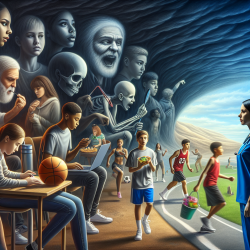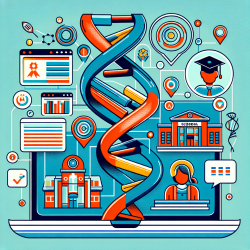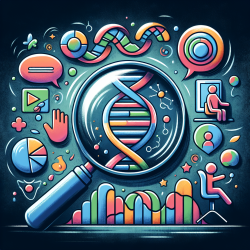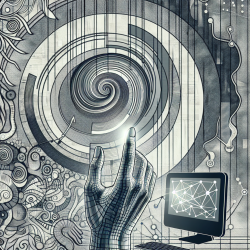Introduction
In the ever-evolving landscape of adolescent development, understanding the intricate interplay of personality traits and health outcomes is crucial. A recent study titled Adolescent Health and Dark Personalities: The Role of Socioeconomic Status, Sports, and Cyber Experiences sheds light on how dark personality traits influence adolescent health, providing valuable insights for practitioners aiming to foster better outcomes for young individuals.
The Impact of Dark Personalities
The study explores the influence of dark personality traits—Machiavellianism, narcissism, and psychopathy—on adolescents' health. These traits, often associated with manipulation, self-centeredness, and a lack of empathy, have been linked to negative social behaviors and emotional eating, which can affect physical health and quality of life. Understanding these associations allows practitioners to tailor interventions that address the root causes of these behaviors.
Key Determinants: Socioeconomic Status, Sports, and Cyber Experiences
- Socioeconomic Status: Economic disadvantage is associated with higher levels of Machiavellianism and psychopathy, as adolescents may adopt these traits as adaptive strategies to cope with financial stressors.
- Sports Engagement: Involvement in spectator sports can foster narcissistic and Machiavellian traits due to the competitive nature of sports, highlighting the need for balanced sports programs that promote healthy competition.
- Cyber Experiences: Cyber victimization is linked to psychopathy, as adolescents may develop these traits as defense mechanisms against online harassment. This underscores the importance of digital literacy programs that equip adolescents with skills to navigate online interactions safely.
Emotional Eating and Health Outcomes
Dark personalities influence emotional eating behaviors, which in turn affect health outcomes such as BMI and quality of life. Adolescents with these traits may engage in emotional eating as a coping mechanism, driven by both positive and negative emotions. Practitioners can leverage this understanding to develop interventions that promote healthier eating habits and emotional regulation.
Practical Implications for Practitioners
For practitioners, this study highlights the importance of creating targeted interventions that address the specific needs of adolescents with dark personality traits. Programs focusing on mindfulness, cognitive-behavioral therapy, and digital literacy can help adolescents develop healthier coping mechanisms and improve their overall well-being.
Conclusion
By understanding the complex relationship between dark personalities and adolescent health, practitioners can implement strategies that promote positive developmental outcomes. This research serves as a foundation for further exploration and intervention development, ultimately contributing to the well-being of future generations.
To read the original research paper, please follow this link: Adolescent Health and Dark Personalities: The Role of Socioeconomic Status, Sports, and Cyber Experiences.










